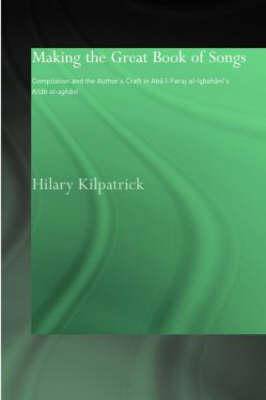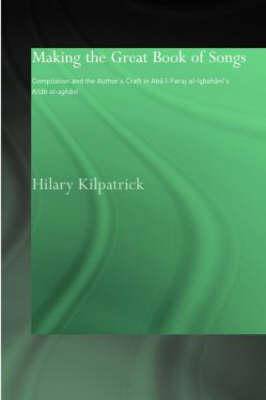
- Retrait gratuit dans votre magasin Club
- 7.000.000 titres dans notre catalogue
- Payer en toute sécurité
- Toujours un magasin près de chez vous
- Retrait gratuit dans votre magasin Club
- 7.000.0000 titres dans notre catalogue
- Payer en toute sécurité
- Toujours un magasin près de chez vous
Making the Great Book of Songs
Compilation and the Author's Craft in Abû I-Faraj Al-Isbahânî's Kitâb Al-Aghânî
Hilary KilpatrickDescription
This is the first systematic literary study of one of the masterpieces of classical Arabic literature, the fourth/tenth century Kitâb al-aghânî (The Book of Songs) by Abû I-Faraj al-Isbahânî. Until now the twenty-four volume Book of Songs has been regarded as a rather chaotic but priceless mine of information about classical Arabic music, literature and culture. This book approaches it as a work of literature in its own right, with its own internal logic and coherence. The study also consistently integrates the musical component into the analysis and proposes a reading of the work in which individual anecdotes and poems are related to the wider context, enhancing their meaning.
Spécifications
Parties prenantes
- Auteur(s) :
- Editeur:
Contenu
- Nombre de pages :
- 448
- Langue:
- Anglais
- Collection :
Caractéristiques
- EAN:
- 9780700717019
- Date de parution :
- 10-10-02
- Format:
- Livre relié
- Format numérique:
- Genaaid
- Dimensions :
- 173 mm x 227 mm
- Poids :
- 780 g

Les avis
Nous publions uniquement les avis qui respectent les conditions requises. Consultez nos conditions pour les avis.






